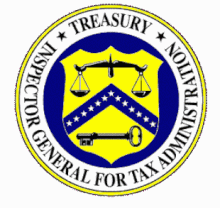April 7, 2020
TIGTA-2020-2
The Treasury Inspector General for Tax Administration (TIGTA) today urged taxpayers to be on high alert for potential scams related to government assistance to taxpayers impacted by the coronavirus.
“The Coronavirus Aid, Relief, and Economic Security Act authorizes payments to taxpayers to offset the economic impact of the coronavirus,” said J. Russell George, the Treasury Inspector General for Tax Administration. “Previous government assistance efforts have been used by crooks and scammers who see this as an opportunity to defraud taxpayers in every way possible.”
Since 2013, TIGTA has investigated scams in which individuals impersonate Internal Revenue Service (IRS) officials in order to obtain personally identifiable information from unsuspecting taxpayers or to coerce them into making payments to clear up alleged unpaid tax debt.
TIGTA has also investigated phishing attempts in which taxpayers receive scam e-mails claiming to be from the IRS. Scammers use phishing e-mail and text messages to victimize taxpayers in many ways including loading malicious software on their computers and utilizing victim information to file fraudulent tax returns.
If you receive letters, calls, emails, or other communications from individuals claiming to be from the IRS and offering coronavirus stimulus payments in exchange for personal financial information, an advance fee, or charge of any kind, including the purchase of gift cards, please do not respond. These are scams. Please contact TIGTA so these scammers can be identified and stopped.
Inspector General George offered the following tips to taxpayers:
The IRS is not going to contact you by telephone to ask you for your personal identification or financial information in order to provide you with an economic impact payment.
The IRS will never contact you and ask you to make any kind of payment using an iTunes card, gift card, prepaid debit card, money order, or wire transfer.
The IRS will never request personal or financial information by e-mail, text messages, letters, or any social media.
If you receive a call from someone claiming to be from the IRS asking for your personal identification or financial information in exchange for an economic impact payment, take the following action:
Hang up.
If you owe Federal taxes, or think you might owe taxes, call the IRS at 1-800-829-1040. IRS employees can help you with your payment questions.
Inspector General George encourages taxpayers to be alert to phone and e-mail scams that use the IRS name and logo. Forward suspected scam e-mails to phishing@irs.gov. Do not open any attachments or click on any links in those e-mails. Also, be aware of other unrelated scams (such as saying you are a lottery or sweepstakes winner) and solicitations (such as debt relief offers) that fraudulently claim to be from the IRS.
Credit:https://www.treasury.gov/tigta/
Book a paid consultation
Yes, Book My Slot


